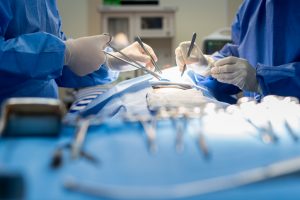What to expect as a caregiver after major surgery
June 8, 2019 0

Your loved one has just undergone a major surgery.
What should you expect as a caregiver?
Your health care provider will give you specific instructions after a particular surgery.
In this post, I will give you a general overview of what you can expect after your loved one goes through a major surgery; like hip replacement or organ transplant.
Let’s delve right in.
What to expect as a caregiver after a major surgery
- One of the things you will find a nurse looking for shortly after a person wakes up from surgery is for them to pass urine. So it is likely that your loved will not be discharged until they have passed urine. However, if you find that your loved one is finding it difficult to pass urine, you should call your healthcare provider.
- It is possible that after surgery, your loved one will experience pain when they cough. One of the ways to help to make this bearable to have your loved one hold and hug a pillow to their chest while they cough. So keep a pillow close by.
- It is common for people to feel very tired after a major surgery-even after discharge. During this time, make sure your loved one is getting all the rest they need. If you have a full-time job, you may need to enlist the help of others. You could get friends and family or hire a professional caregiver to help your loved one during this time.
- It’s important to keep on eye surgical site. Your loved is going to leave the hospital with dressing at the site. The nursing staff will give you pointers on how to change the dressing before your loved one is discharged. You want to make sure the amount of redness and swelling around the surgical site is not increasing. If you do notice that the area is red, painful and oozing white liquid and your loved one tells you they are experiencing fever, you should take your loved one to an emergency room immediately.
- And speaking of surgical sites, the dressing should be dry to keep infections away.
- Even though your loved one will feel weak and needs a lot of rest after surgery, it is also important that they move after surgery. It doesn’t have to be a prolonged event. Movement is good because it allows the heart to pump blood more efficiently to the legs and arms.
- If your loved one still has sutures or staples, it may require that you make an appointment to have them removed.
- For major surgeries, it is important for people not to lift anything heavy for at least 6 weeks. If the person had an abdominal incision, it is important that they don’t lift anything above 10 pounds.
These the general things you can expect and look out for after your loved one goes through a major surgery.
As I mentioned before, before you are discharged, you will receive a lot of information from the doctors and nurses.
If you happen to accompany your loved one here, it is important to pay careful attention.
